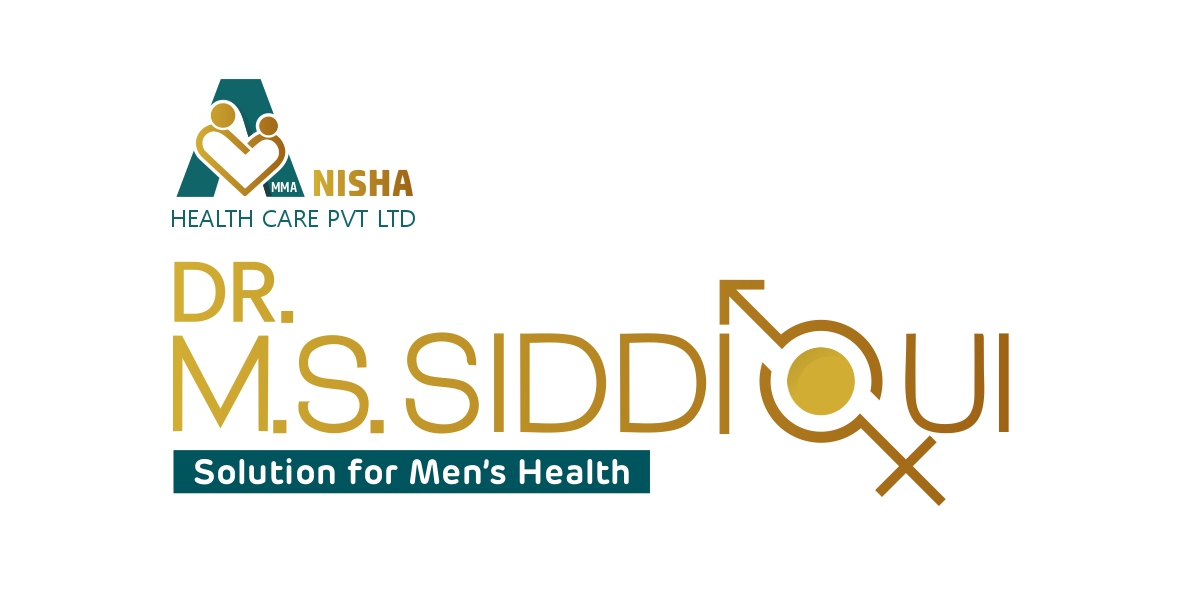PCOD vs PCOS: What’s the Difference?
Two frequently used phrases in relation to women’s reproductive health are PCOD (Polycystic Ovarian Disease) and PCOS (Polycystic Ovaries Syndrome). These circumstances are not well understood. Many times used interchangeably, still they differ. Effective diagnosis, therapy and lifestyle management depends upon clear knowledge of the difference.
As a sexologist and general physician at Nisha Health Care Clinic, Dr. M.S. Siddiqui regularly consults patients who are confused between PCOD and PCOS. Let’s clear the misunderstanding and differentiate between them in simple terms.
What is PCOD (Polycystic Ovarian Disease)?

In PCOD, the ovaries produce many immature or partially matured eggs that ultimately form cysts. These cysts cause hormonal imbalances and enlarged ovaries. PCOD affects women and often causes irregular periods, weight increases, acne, and infertility problems.
Key Features of PCOD:
More common in women
Ovaries produce excess immature eggs
May not cause severe hormonal imbalance
Often manageable with lifestyle changes
Does not always impact fertility
Not considered a serious metabolic disorder
Causes: Poor lifestyle, obesity, stress, and hormonal changes.
What is PCOS (Polycystic Ovary Syndrome)?

PCOS is a complicated and more severe endocrine disease. In PCOS, the hormonal imbalance is more significant, leading to higher levels of androgens (male hormones), which interfere with ovulation. Because it influences several systems in the body—reproductive, metabolic, and psychological—it is termed a syndrome.
Key Features of PCOS:
A metabolic disorder
Irregular or absent ovulation
High androgen (male hormone) levels
Associated with insulin resistance
Increases risk of diabetes, infertility, heart disease
Requires medical treatment along with lifestyle changes
Causes: Genetic predisposition, insulin resistance, obesity, and inflammation.
PCOD vs PCOS – A Comparative Table
| Feature | PCOD | PCOS |
|---|---|---|
| Nature | Disease | Syndrome |
| Severity | Less severe | More severe |
| Hormonal Imbalance | Mild or moderate | Severe |
| Menstrual Cycle | Irregular but often present | Frequently absent or very irregular |
| Fertility | Can still conceive with lifestyle changes | More likely to face infertility without treatment |
| Ovulation | Often occurs irregularly | Rare or absent |
| Associated Risks | Minimal long-term risks | Higher risk of diabetes, heart disease, infertility |
| Treatment Approach | Diet, exercise, minimal medication | Requires medical treatment and monitoring |
Common Symptoms in Both Conditions

Although different in nature and severity, PCOD and PCOS do share some common symptoms:
Irregular menstrual cycle
Weight gain
Acne and oily skin
Hair thinning or excessive hair growth (hirsutism)
Mood swings
Difficulty in conceiving
Diagnosis: How to Know the Difference?
A thorough clinical examination, hormonal tests, and an ultrasound scan can help differentiate between PCOD and PCOS. At Nisha Health Care Clinic, Dr. M.S. Siddiqui and Dr. Ruby Siddiqui offer advanced diagnostic support and a holistic approach to treatment.
Which Is More Serious—PCOD or PCOS?
PCOS is generally considered more serious than PCOD due to its impact on multiple body systems. It not only affects reproductive health but also raises the risk of:
Type 2 diabetes
High blood pressure
Endometrial cancer
Sleep apnea
Mental health issues like anxiety and depression
PCOD is often manageable with lifestyle changes alone, while PCOS usually needs long-term medical supervision.
Treatment Options
Both PCOD and PCOS can be managed effectively with the right approach:
Lifestyle Modifications:
Healthy diet (low-carb, high-protein)
Regular exercise
Stress management techniques like yoga or meditation
Weight control
Medical Treatments:
Hormonal therapy (birth control pills or hormone regulators)
Insulin-sensitizing agents like metformin (for PCOS)
Ovulation-inducing medications (if trying to conceive)
Treatment for acne or excessive hair growth
At Nisha Health Care Clinic, we provide a personalized treatment plan tailored to your specific condition.
Final Thoughts
While PCOD and PCOS may seem similar, understanding the difference is crucial for correct diagnosis and timely treatment. If you’re facing irregular periods, difficulty conceiving, or sudden weight gain, don’t ignore the signs. Early intervention can help prevent complications.
✅ Consult Dr. M.S. Siddiqui or Dr. Ruby Siddiqui today for expert care and guidance.
Visit Nisha Health Care Clinic
✅ Barabanki Branch: ₹200 (4 days validity)
📍 Address: W5JQ+R7F, Station Rd, Near – Ultra Pathology, Ghosiyana, Preet Vihar Colony, Civil Lines, Barabanki, Uttar Pradesh 225001
⏰ Timings: Morning (10:00 AM – 2:00 PM) | Evening (5:00 PM – 8:00 PM) (Sunday Closed)
✅ Lucknow Branch: ₹300 (4 days validity)
📍 Address: Shop 1, Nisha Health Care Clinic, Amethi Complex, Janana Park, Aminabad, Lucknow, Uttar Pradesh 226018
⏰ Timings: Thursday: 3:00 PM – 7:00 PM
💻 Online Consultation: ₹300
👨⚕️ Clinic Specialists:
🔹 Dr. M.S. Siddiqui (Sexologist & General Physician)
🔹 Dr. Ruby Siddiqui (Gynecologist & Infertility Specialist)
🌐 Follow Us for Updates
🔹 YouTube: @DrMSSiddiqui
🔹 Facebook: Dr. M.S. Siddiqui
🔹 Instagram: @dr.ms_siddiqui
🔹 Twitter: @DrMSSiddiqui1
📞 Call Us: +91-9219324982, +91-7394807096



